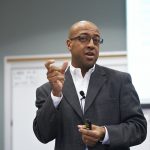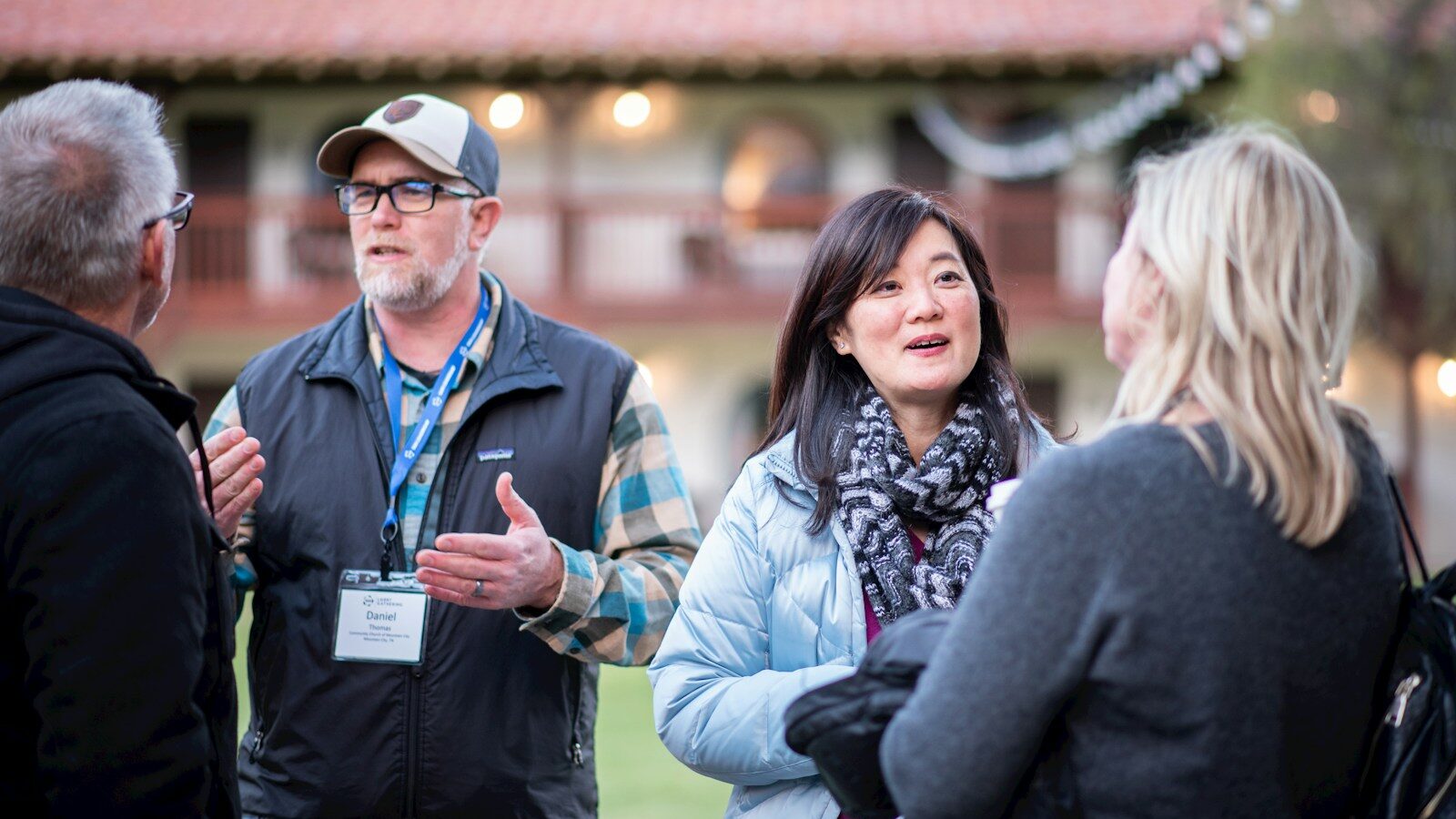Updated competency models improve coaching’s effectiveness
Competency models help the coaching profession gauge coaching’s overall effectiveness. To improve coaching’s efficacy, the field of coaching must establish what makes coaching distinct and the skills needed for effective practice.
Challenge:
The coaching field needs updated competency models to gauge effectiveness
Opportunity:
Promising research suggests new methods for improving coaching practices
Impact:
Updated coaching competency models ensure best practices in the field of coaching
Wisdom Weavers
Outdated coaching competency frameworks lack clarity and expansiveness
In the field of coaching, the practice of coaching has outpaced research on coaching’s efficacy, leaving coaches, coach instructors, and accrediting bodies grappling to define what makes a competent coach. Competency frameworks help ensure that the methods coaches use to support clients achieve the best possible outcomes. These competency frameworks also serve as useful benchmarks for coaches striving to keep up with emerging trends in the coaching field.
As Wisdom Weaver Dr. Michael Cavanagh outlines in his talk on Day One of the Shaping the Future of Coaching Convening, “I wasn’t able to find a single experimental randomized controlled study of coaching competencies. What I did find was a whole bunch of different frameworks and all different sort of qualitative studies, but really what they are is mostly at the level of collated opinion. You get a whole bunch of experts together, and you say, well, what are the competencies, and then that becomes a competency framework.”
Wisdom Weaver Dr. Richard Boyatzis concurs with Michael’s findings. As one of the first to conduct coaching competency research assessed against performance in 1970, Richard explains that although well intended, surveys of clients, coaches, and expert coaches yield opinion or value-based competency models. His 1982 book, The Competent Manager, reported on competency studies of managers at all levels in 12 large government and industrial organizations. He showed that the models collected from expert opinion had a 50% overlap with those competencies that predicted effective performance. Another 25% of those from the opinion-based models were irrelevant, and 25% were opposite to what appeared to predict performance. The result is a high degree of misdirected effort and assessment.
Outdated competency models can confuse knowledge, tasks, basic skills, values, and style with actual competencies that predict coaching’s effectiveness. If outdated or non-coaching competencies are used for certification, coaches can then certify the wrong client capabilities, as shown in studies of other professions. Wisdom Weaver Dr. Sandra Diller explains the frustration that many coaches face:
“I think it’s also important for us to differentiate coaching from other professions…because right now, it feels like we have to have every competency: leader, coach, trainer, and mentor. To have every competence that’s, I think, quite impossible.”

Wisdom Weaver Dr. Melvin Smith suggests, “there’s an opportunity for a comprehensive empirical examination of coach competencies that yield positive change in client outcomes. There still has not been a definitive research study comprehensively done that truly distinguishes and measures effective coach competencies.”
The question is not if coaching is effective. Melvin explored research documenting the long- and short-term benefits of coaching, and Wisdom Weaver Dr. Erik de Haan researches both the qualitative and quantitative studies indicating positive coaching results. For the field to progress, researchers will need to validate assumptions about how the coaching process leads to positive outcomes in clients through longitudinal and control-based designs.
Only after testing existing hypotheses about the coaching process and outcomes will coaches be able to apply validated competencies that help clients. Organizations that train coaches, as well as accrediting bodies, can then use the valid competency requirements to guide the coaches under their care. The result is increased value in the coaching experience for coach trainers, coaches, and their clients with more efficient use of time and effort.
Up-to-date competencies help coaches achieve better client outcomes
Conducting the kind of rigorous trials needed to validate effective coaching competencies requires funding, large sample sizes of diverse audiences, and time. Wisdom Weavers suggest collaborating both within and outside of the field of coaching as two possible avenues to enhance research into viable coaching competency frameworks. These suggestions, as well as priorities for future research, were collated into the Grand Challenge For The Future of research on Coaching and is being published in a scholarly journal, the Journal of Applied Behavioral Science (with open access).
“So, what stories do competency frameworks enable and disable? What do they enable? What do they constrain?”

Looking to the future of coaching, Wisdom Weavers Dr. Michael Cavanagh and Dr. Kylie Rochford warn against relying too heavily on the past or simplistic competency models. Basing research on the foundation of current practice and frameworks could potentially limit curiosity and unorthodox hypotheses that lead to better competency models. They describe the concept of equifinality —having the same end or result — in coaching research, where a certain outcome could potentially be reached through multiple pathways:
“In competency models and the psycho-mechanic type approach, it’s very much underpinned by a reductionist understanding. So, equifinality as a complexity concept really fits in on that.”

“There are multiple paths to any given outcome, be it performance, effectiveness, or whatever it is that we’re trying to understand, and it’s actually quite likely that it’s not going to be any one competency. It’s likely to be different combinations of competencies, and that’s, you know, also depending on who you’re coaching and then your own personal coaching competencies, so it’s a very complex picture.”

Individuals and organizations seek out coaches for many reasons, including to help improve targeted skills, reach full performance potential, and gain deeper insights and awareness. Adept coaches must learn to modify their approach based on the specific needs of their clients.
Wisdom Weaver Dr. David Peterson shares, “I think the journey from new coach to good coach really depends on competencies but going from good to great needs to shift to ‘how do we establish the desired outcomes using a broader repertoire of skills and tools and frameworks?’” Identifying how skills and competencies lead to change and self-actualization will help coaches make informed and confident decisions about how to better help their clients.
Improved coaching competencies can:
- Help coaches expand their repertoire of skills, tools, and frameworks
- Create useful benchmarks to help coaches stay informed on current and changing trends in the coaching field
Coaching and the United Nations Global Goals
Spanning business, health, and relationships, coaches are using their skills to empower individuals and organizations to envision a better future. United Nations Global Goals 8: decent work and economic growth; 9: industry, innovation, and infrastructure; and 11: sustainable cities and communities, outline clear metrics for individuals, organizations, and the global community to collectively support people and the planet. Coaches are working worldwide to make a big impact; companies, NGOs, and policymakers are using coaching to promote diverse and equitable workplace cultures, build staff confidence, and increase collaboration and innovation.
About this Convening
Forty-one Wisdom Weavers from across the globe gathered to share their thoughts and observations on Shaping the Future of Coaching across three separate Future of Coaching Convenings in September 2021. Learn more about the participants and topics covered in this Convening.
For the complete report and research recommendations, see Boyatzis, R.E., Hullinger, A., Ehasz, S.F., Harvey, J., Tassarotti, S., Gallotti, A., & Penafort, F. (2022). The grand challenge for research on the future of coaching. Journal of Applied Behavioral Science. DOI: 10.1177/00218863221079937







